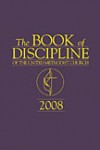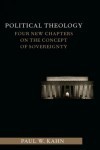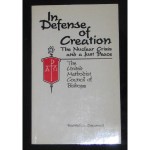Without a vision, the people perish. Let your young men see visions and your old men dream dreams. Those words sound particularly hollow at the moment, and yet they resonate with what is lacking and remind us of what inspired the original followers of Jesus and also the hopes of those who greeted his arrival. Where are the visions now, and what do we have to guide us through what may well be a dark period?….
During the past two decades, political liberalism has been put on trial. Political theorists indebted to Sheldon Wolin (William Connolly, Romand Coles, Bonnie Honig) have, in various ways, exposed liberalism’s tendency to conceal or downplay significant dimensions of political struggle. These authors indict liberalism for its narrow understanding of public reason, an understanding that underestimates qualities, practices and interactions within our lifeworlds that tend to thwart liberalism’s drive toward consensus and agreement (here I am thinking of clashing visions of the good life, memory of injustice, or the emergence of new movements that challenge our very notion of publicity and reason). This trend within political theory resembles developments in religious studies and theology. Recent discussions between Stanley Hauerwas, Jeff Stout, and Cornel West revolve around liberalism’s tendency to depoliticize religious commitments by relegating them to the private sphere. For these authors, this inclination overlooks the deep connections between democratic struggle and religious practice within American history. These authors remind us that democracy and faith are bedfellows (and not necessarily strange ones).
Jonathan Kahn and Vincent Lloyd, in recent blog posts here, attempt to move these discussions further and potentially in new directions…
With the elections in Spain two weeks ago, the first modern government to explicitly model itself on the work of an academic political philosopher was voted out of office. The Spanish Prime Minister, Jose Luis Rodriguez Zapatero, had become a devotee of the Princeton political philosopher Philip Pettit in 2000, when Zapatero was leader of the opposition searching for how to envision left-liberal politics distinct from the Clinton-Blair “third way.” As a Zapatero associate put it, “Philip Pettit provided us with the appropriate grammar to furnish our political intuitions, to express the kind of proposals and dreams we had in mind for Spain. Pettit’s republicanism has been our north star.” Does the political philosophy that Zapatero found so compelling, civic republicanism, leave a role for faith?
By Jonathon Kahn, Vassar College
Who are the fools among us who continue to have faith in democracy and in American democracy in particular? After a desultory three-year period of community organizing in the corner of Harlem that I call home, I find myself preoccupied with this question. My community was unable to bridge the gap between what came to be called the “old” and “new” Harlem. To be sure, there were moments that Bonnie Honig might call “democratic ruptures,” when my community tried to rework its own sense of “we-ness.” But these moments were fleeting. “Ordinary life,” as Honig says, “reasserts itself, with a bit of a vengeance.”[i] Democratic energies dissipate. Democratic energies fail.
And yet I find myself wanting to argue that democratic faith is possible and needed. Though I have no theistic beliefs of my own, I can find no way to move forward with democratic life except as a person of faith. What, then, do I mean by faith and why does democracy need it?
The editors of Political Theology are pleased to announce that the latest issue is now available on the web. Issue 12.6 (December 2011) carries a special section devoted to issues of migration and asylum, and features a guest editorial on ‘Migration as a Challenge for Theological Ethics’ by David Hollenbach, SJ, who holds the University Chair in Human Rights and International Justice at Boston College. This is followed by three related articles by Elena Namli, from Uppsala University, Sweden; Mark W. Potter, who is the Provincial Assistant for Social Ministries of the California Province of the Society of Jesus; and Anna F. Rowlands from the Margaret Beaufort Institute, University of Cambridge. The editorial and review open access. The full table of contents appears below:
Here we have one of the classic Advent themes associated with our preparations for the birth of Christ, but actually referring to John the Baptist as the forerunner of Jesus’ ministry 30 years later. I want to suggest an unorthodox and creative way of interpreting this text, one perhaps more in-keeping with the current context. We are inclined to ask ourselves “whose are the voices?” and “where is the wilderness?” I will reverse these questions in order to throw some light upon the nature of vocation and the reasons for the apparent frustrations of it.

By D. Stephen Long
When I published my first book, which was on United Methodism and war, John Howard Yoder surprised me by blurbing it with the comment that it was interesting to see “non binding hortatory statements” taken seriously. When I first read that blurb I thought Yoder was incorrect. That book was a discussion of article XVI in the United Methodist Confession of Faith that says “We believe war and bloodshed are contrary to the gospel and spirit of Christ.” This article has never been rescinded. I thought Yoder misunderstood the nature of our Wesleyan heritage. In the intervening time, I have come to see he was correct. Despite having the Book of Discipline, we are not a disciplined church when it comes to any ethical or doctrinal issue.
The vision of God’s kingdom espoused in Isaiah 61 seems more “not yet” than “already.” Jesus identified the first two verses as a prophecy regarding himself, the Messiah, when he read from this chapter in Luke 4. In spite of Christ’s commitment to the least of these, large segments of the Western church insist on spiritualizing Christ’s mission so that it focuses on poverty of spirit or spiritual blindness—an interpretive move that allows injustice to persist unabated and unthreatened by prophetic witness.
It is unfortunate that the mainstream evangelical church owes its political stance more to John Stuart Mill than to Jesus. The members of many churches worship American individualism and the free market more than the ethical responsibility for the “other,” as encouraged by French philosopher Emmanuel Levinas, and ultimately Jesus himself. In On Liberty, Mill defends the rights of individuals to behave as sovereigns over themselves as long as others are not harmed. Unfortunately, many Christians have adopted this perspective, and the government is viewed as an oppressive behemoth bent on snatching away private liberties. What is not mentioned is that our individual economic decisions are often destructive to the overall well-being of fellow citizens.

In my prior posting, I was concerned with elaborating the disciplinary position from which I take up the project of political theology. It is a part of the secular study of our political practices and beliefs. Accepting these limits, I placed myself within the same modernist tradition as liberal political theory.
There is a deeper point to be made about the symmetry between theory and practice in the modern age. Liberal political theory is committed to the idea that an adequate account must be one that is fully transparent to reason. Theory is to be built through discrete, rational steps from common premises that purport to be universal. Accordingly, it is hostile to any privileged claims made on the basis of a particular faith, including claims for the existence of God or a natural order. In a parallel fashion, the modern, political order is to be autochthonous. It is to rest on nothing outside of itself. This is not a claim about history, which knows no beginnings; rather, it describes a secular understanding of the origin and ground of the state. This is an important idea, for example, in the decolonization movement: a post-colonial state can create itself through an original founding act. It need not express a pre-existing national or ethnic identity.
The wilderness was not a place that good Romans went. In the view of Roman imperial cosmology, the wilderness was a place full of savage people to be subdued and conquered. The Augustus of Prima Porta statue, imaged here, shows precisely this view. The heavens come into alignment and the Gods look down in delight as the Parthian king surrenders to Rome. On either side, mourning barbarian women are curled in positions of submission. This is how Rome viewed the wilderness — the worlds of barbarian people and wild animals outside the boundaries of Roman control, and only fit into the Roman imagination once they had been subdued. This was the drama enacted regularly in the arena, where wild animals and foreign persons were slaughtered before adoring crowds.
